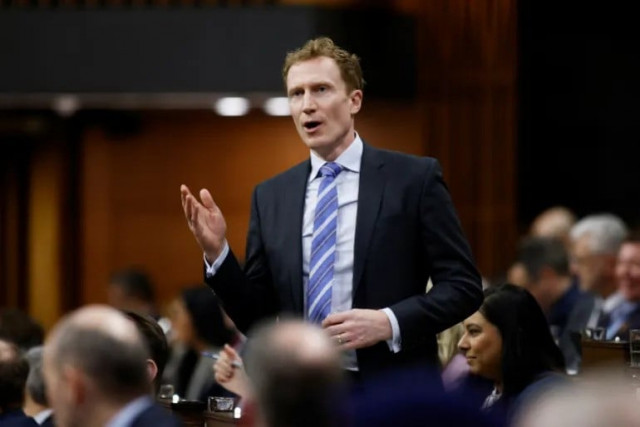Canada announces first immigration cut in years amid growing political pressure
Immigration minister announces country to admit 1.1 million new permanent residents from 2025 to 2027

Canada is set to reduce its immigration intake for the first time in years as the Liberal government, led by Prime Minister Justin Trudeau, attempts to regain political ground ahead of the next election.
Immigration Minister Marc Miller announced on Thursday that from 2025 to 2027, the country will admit 1.1 million new permanent residents, a 21 per cent reduction compared to previous targets.
This policy shift marks a significant departure from Canada's pandemic-era immigration strategy, which saw a loosening of restrictions to address labour shortages.
In contrast, the new plan aims to "pause population growth in the short term" to ensure more "well-managed and sustainable growth" in the future.
Under the new targets, Canada will welcome 395,000 new permanent residents in 2025, 380,000 in 2026, and 365,000 in 2027. These figures are down from the 485,000 planned for 2024. The number of temporary residents will also be reduced by 30,000 in 2025, bringing the total to 300,000.
While the Trudeau government has long championed immigration as a key to Canada's economic growth, the policy change reflects mounting public concerns.
Housing shortages, infrastructure strains, and social services under pressure have sparked debate over whether immigration is contributing to these issues. Recent polls show a growing number of Canadians believe the country is accepting too many newcomers, a shift that has fueled support for the opposition Conservatives.
“We didn’t get the balance quite right,” Trudeau admitted, acknowledging the challenges posed by rapid population growth. “We see the pressures facing our country, and we must adapt our policies accordingly.”
The revised immigration targets have sparked a backlash from advocates for migrant rights. Syed Hussan, spokesperson for the Migrant Rights Network Secretariat, criticised the cuts as "one of the most egregious rollbacks of migrant rights in Canadian history."
He warned that reducing permanent resident admissions would push more migrants into temporary or undocumented status, exposing them to exploitative working conditions.
Canada’s decision to curtail immigration is projected to lead to a slight population decline of 0.2 per cent in 2025 and 2026, but the government anticipates a rebound in 2027 with a population increase of 0.8 per cent.
The government argued that these adjustments would help provinces, territories, and stakeholders align their resources and capacities to better support incoming immigrants.
As Canada prepares for a federal election, due no later than October 2025, the immigration debate is expected to remain a contentious issue, with the future of the country’s policies hanging in the balance.



















COMMENTS
Comments are moderated and generally will be posted if they are on-topic and not abusive.
For more information, please see our Comments FAQ